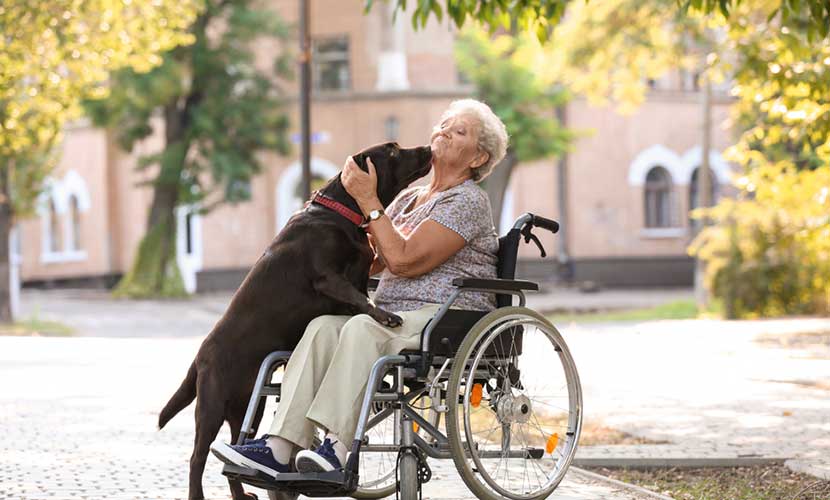
Caring for a Loved One with a Disability: A Guide for Families
Discover how to care for a loved one with a disability. Learn practical tips, emotional support, and self-care strategies for balanced family caregiving.

Dogs can be great partners for people with autism. They provide companionship, support, and love. Studies have shown that dogs can help improve the social skills of people with autism, as well as their emotional state.


Dogs are known to be great reducers of stress and anxiety. They provide a sense of calm and security, which is incredibly important for people with autism.
Dogs can help reduce tension and promote relaxation in a number of ways. For example, they can provide physical touch by lying next to their owner or being stroked gently. They can also provide emotional support by being present and ‘listening’ to their owner talk without judgment.
Dogs provide social interaction for those who have autism. People with autism may find it impossible to communicate with others, but dogs can help break the ice.
Dogs are very non-judgmental and accepting, making them the perfect companion for those who have autism. They provide unconditional love and support, which can be hard to come by in today’s society.
Dogs can help autistic people learn how to interact with others, as well as teach them how to respond in social situations. They help build confidence and improve communication skills, making it easier for people with autism to interact with the world around them.
Dogs can help increase the self-esteem of people with autism in a few ways.
One way is that dogs provide a sense of companionship. People with autism can feel isolated and alone, but when they have a dog, they always have someone to talk to. Dogs also provide a sense of security, which can be important to those who feel scared or anxious often.
In addition, dogs can help people with autism become more independent. Dogs need to be walked and fed, so people with autism learn how to take care of another living thing.
Studies have shown that children with autism who interact with therapy dogs have increased social skills and attention spans. Dogs also provide a non-threatening, non-judgmental presence that can be comforting to people with autism.
Dogs can help people with autism to learn new skills and tasks. They can also help to motivate people with autism to engage in activities they might otherwise avoid.
Many people with autism have trouble with motor skills and physical activity. Dogs provide a great motivator for people with autism to get up and move.
They need to be played with, walked, and taken care of, which gives people with autism the perfect opportunity to get some exercise. Dogs can also help improve coordination and motor skills. Tossing a ball or Frisbee around, playing tug-of-war, or even just petting a dog can all help in this area.


Dogs provide emotional support and can help with social interactions. They can also help with balance and provide a sense of safety. Additionally, dogs can be a source of distraction from negative stimulations, thus proving to be indispensable partners to individuals, and especially the disabled.

Discover how to care for a loved one with a disability. Learn practical tips, emotional support, and self-care strategies for balanced family caregiving.

Discover science-backed longevity diet tips, debunk common myths, and learn what truly supports a longer, healthier life through balanced nutrition.

Maintaining a balanced diet is essential for overall health, but for individuals with mobility challenges,

Technology has become an essential part of daily life, but for many seniors, adapting to digital tools can feel overwhelming.
Copyright © 2018 - 2023, TAUS Care. All Rights Reserved. Designed by RepuNEXT.